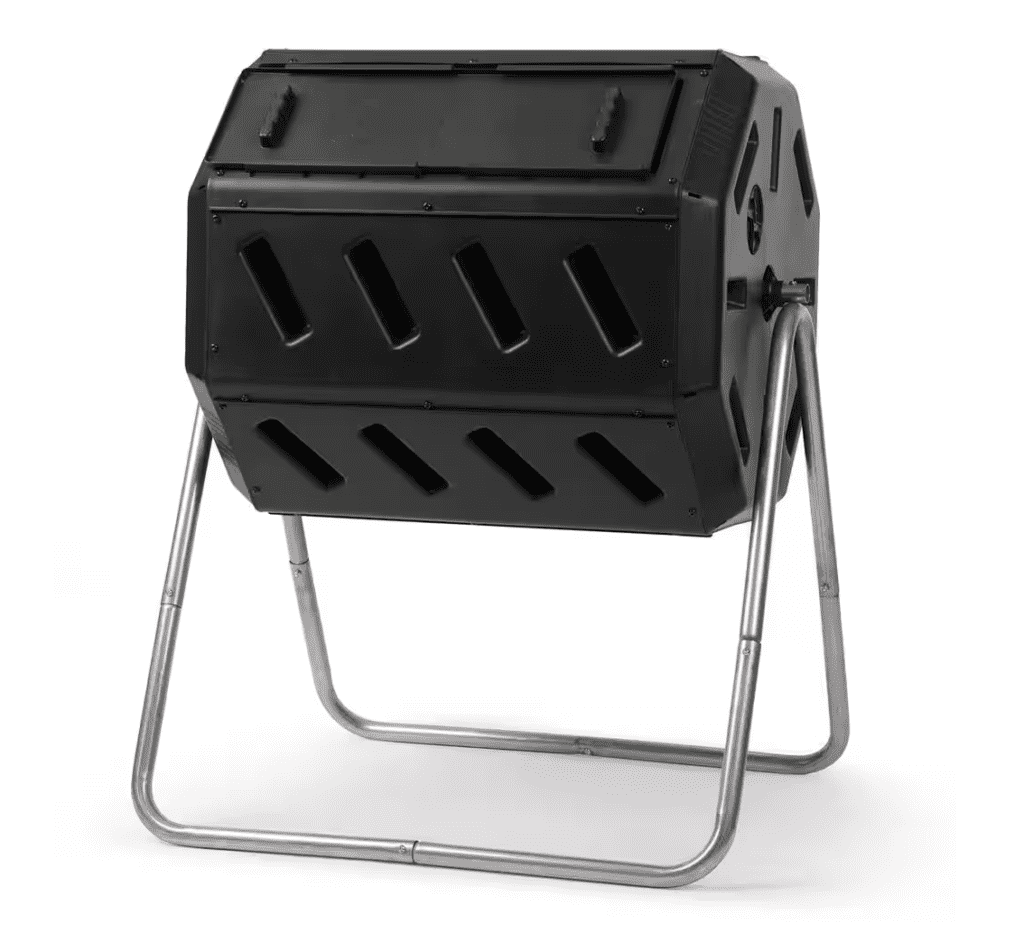Composting banana peels is as easy as simply tossing your leftover banana peels in the compost to break down for your garden. But did you know you can use the advantages of banana peels in your compost for your garden in a fast way?
TIP: Have lots of overripe bananas? Try out this homemade banana bread recipe and save the peels for composting!
The Advantages of Banana Peels In Your Compost For The Garden
- Rich in Nutrients: Banana skins are rich in nutrients like potassium, phosphorus, calcium, and magnesium. These essential nutrients can help improve soil health and promote healthy plant growth.
- Improves Soil Quality: The organic matter found in banana peels can help improve garden soil, drainage, and water-holding capacity, making it easier for plant roots to grow and absorb nutrients.
- Boosts Plant Growth: The nutrients found in banana peels can help promote healthy growth and improve the production of fruiting plants and flowering plants.
- Repels Pests: Banana peels contain compounds that can help repel pests such as aphids, slugs, and snails, which can help protect your plants from damage.
- Easy to Use: Using banana peels in your garden is easy. You can simply chop them up and add them to your compost pile, bury them in the soil around your plants, or use them to make a nutrient-rich compost tea.
How to Compost Banana Peels
Banana peels add so many nutrient-rich additives to your compost mix. Our favorite ways to compost banana peels are to add them directly to your compost bin or make a banana peel compost tea.

Compost Bin Composting Process
You can toss the banana peels in your compost heap as a whole peel, but they may take a long time to compost this way. To speed up the composting process, cut the banana peels into small pieces. Cutting the peels into smaller pieces increases the composting process providing you with rich fertilizer faster.
A well-maintained compost pile begins with a foundation of compost materials. Start by building a base layer of twigs or straw at the bottom of your compost pile. Then, add layers of organic materials such as kitchen scraps, banana peels, yard waste, and garden clippings. Aim for a mixture of green materials (such as grass clippings, dead garden plants, and food waste) and brown materials (such as dead leaves, dead grass, and wood chips). Make sure to add enough water to keep the organic waste moist but not too wet to encourage the decomposing process.
Coffee drinker? Learn How to Use Coffee Grounds in Your Garden!

Tumbling Composter With Two Chambers
The perfect backyard composter for your garden.

How to Make Banana Peel Compost Tea
Banana peel compost tea is an excellent way to use up banana peels and a great fertilizer that provide your plants with essential nutrients. Here are the steps to make banana peel compost tea:
- Gather your banana peels: Collect several fresh banana peels and cut them into small pieces. You can use fresh or dried peels.
- Add water: Place the banana peels in a bucket or container and add water. Use a ratio of one part banana peels to three parts water. For example, if you have one cup of banana peels, add three cups of water.
- Let the mixture sit: Allow the banana peel and water mixture to sit for several days at room temperature. Stir the banana water once a day. You will notice the water becoming brown as the nutrients are extracted from the banana peels.
- Strain the mixture: After three to five days, strain the banana peel water using a cheesecloth or fine mesh strainer. The remaining liquid is your banana peel compost tea.
- Use the compost tea: Dilute the banana peel fertilizer compost tea with water at a 1:5 ratio (one part tea to five parts water). Pour the mixture into a spray bottle or watering can and use it to feed your plants.
- Store the compost tea: You can store the compost tea in an airtight container for up to a week. After a week, discard any remaining tea and make a new batch.

Items to Avoid Putting In Your Compost
There are several food items and kitchen waste you should avoid putting in your compost pile for the garden. These items include:
- Meat and dairy products: These can attract pests and create unpleasant odors in your compost pile.
- Greasy or oily foods: Watch your leftover food scraps for oils or grease. These can slow down the composting process and make it difficult for the pile to break down.
- Diseased or insect-infested plants: These can transfer diseases and pests to your garden.
- Charcoal or ashes: These can change the pH levels of your compost and harm your plants.
- Synthetic chemicals: These can harm the beneficial organisms in your compost and ultimately harm your plants.
- Pet waste: This can contain harmful bacteria and parasites that can spread to your garden and potentially harm your plants or people.
- Non-biodegradable materials: These items will not break down in your compost pile and can contaminate the soil.
Other Gardening Posts:
- 6 Tips On How To Start Urban Homesteading For Beginners
- How to Grow Peppers From Seed | The Ultimate Guide
- Our Indoor Seed Starting Set-Up
- How to Use Egg Shells In Your Garden







Wow- I never heard of this! I’m definitely making note of this. Glad you mentioned ashes…I’ve never added them but I wondered and now I have my answer!